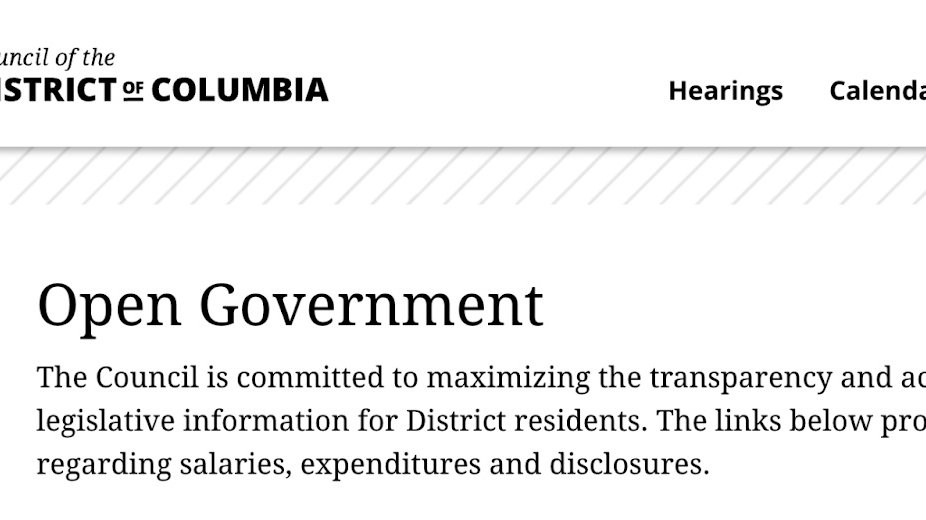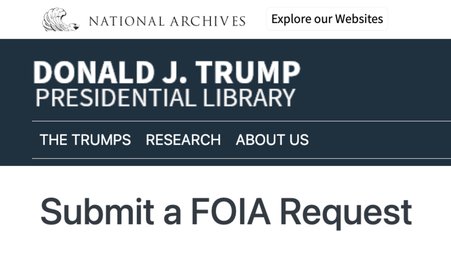Dear Friend of Press Freedom,
I’m Lauren Harper, the first Daniel Ellsberg chair on government secrecy at Freedom of the Press Foundation (FPF), and welcome to “The Classifieds.” Read on to learn about this week’s top secrecy news.
Didn’t think Washington could get more secretive? Think again
Council of the District of Columbia Chairman Phil Mendelson wants to exempt information provided by the courts to the city’s Criminal Justice Coordinating Council from the District’s Freedom of Information Act. The CJCC is an independent agency that works to improve the criminal justice system, and the proposed exemption to limit access to its records is based on the unsubstantiated claim that FOIA requests for such data open a “back door” for court records.
Mendelson’s concern is misguided, and Washington’s Open Government Coalition is raising the anti-transparency alarm. A letter from the coalition notes that the proposed exemption is unnecessary because, among other things, sensitive information can already be withheld under existing statutes. The coalition also argues that if the provision moves forward, it would hinder access to court records that “have been public under the First Amendment, common law, court rules, statutes and public body practice” for decades.
If you are a district resident and you want to preserve access to city records, tell your councilmember to remove the proposed language from the District’s Budget Support Act by Monday, July 28th.
New York State Police can’t hide names of officers from misconduct complaints
The New York State Police can’t use a privacy exemption to hide the names of officers listed in a misconduct investigations database anymore, thanks to a new ruling in a state freedom of information case. The state claimed that revealing the names of officers cleared of wrongdoing violated their privacy, but transparency advocates argued that the names of cleared officers were important to understanding why state-wide disciplinary practices rarely result in serious remedial action. Judge Julian Schriebman sided with advocates, finding there was no reasonable basis for the blanket withholding.
The case was brought by the New York Civil Liberties Union in 2020, the same year that the New York state legislature repealed a law “that police departments relied on for four decades to keep disciplinary records and other police files secret.” A study found that the withholding statute had been abused so often that New York was more secretive about its police misconduct records than any other state.
What I'm Reading
Americans should beware of Gabbard's ‘dangerous distraction’ with revisionist history of 2016 election
Ned Price, a former intelligence officer and spokesperson for the Department of State during President Joe Biden’s administration, has a good explainer in Fox News. It shows how Director of National Intelligence Tulsi Gabbard’s attempt to cherry-pick and manipulate declassified documents to score political points and win favor with her boss is as dangerous as it is disingenuous. (I’ve previously warned against politicizing the declassification process. You can read more about it here.)
The Pentagon won’t track troops deployed on US soil. So we will
Even though the Trump administration has deployed roughly 20,000 troops domestically since January, the Army says it does not maintain an active count of the number of domestic deployments. The Brennan Center’s Elizabeth Goitein says these deployments, which have been most visible in the anti-immigration raids in Los Angeles, violate the law that prevents federal troops from participating in civilian law enforcement. In order to effectively combat the creeping militarization on U.S. soil, the public needs to know how many troops are deployed here at home.
OMB must make appropriations website public again, judge rules
The nonprofit groups Citizens for Responsibility and Ethics in Washington and Protect Democracy Project sued the Office of Management and Budget earlier this year after OMB removed a website that published a tracker of funds appropriated by Congress. Existing law requires the publication of this data two days after a decision has been made on allocation of funds, but OMB director Russell Vought baselessly asserted that following the law would disclose “sensitive, predictive, and deliberative information.” U.S. District Judge Emmet Sullivan didn’t buy it and ordered the website to be restored.
“Under the microscope”: Activists opposing a Nevada lithium mine were surveilled for years, records show
Advocacy groups obtained documents via public records requests showing that law enforcement agencies have been spying on protests against a Nevada lithium mining project. The FBI, as well as state and local agencies, were among those surveilling Indigenous and environmental activists.
Transparently yours,
Lauren Harper
Daniel Ellsberg Chair on Government Secrecy
Freedom of the Press Foundation





